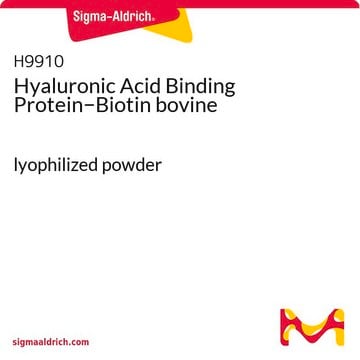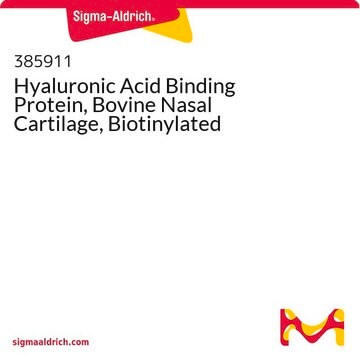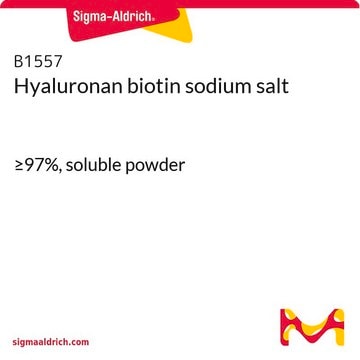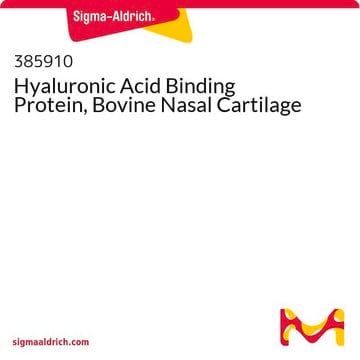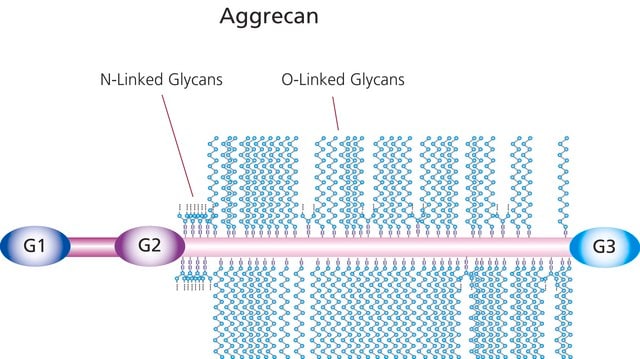H0161
Hyaluronic Acid Binding Protein bovine
lyophilized powder
About This Item
Prodotti consigliati
Origine biologica
bovine
Livello qualitativo
Forma fisica
lyophilized powder
tecniche
immunofluorescence: suitable
N° accesso UniProt
Temperatura di conservazione
−20°C
Informazioni sul gene
cow ... VCAN(282662)
Descrizione generale
Applicazioni
Azioni biochim/fisiol
Codice della classe di stoccaggio
11 - Combustible Solids
Classe di pericolosità dell'acqua (WGK)
WGK 3
Punto d’infiammabilità (°F)
Not applicable
Punto d’infiammabilità (°C)
Not applicable
Dispositivi di protezione individuale
Eyeshields, Gloves, type N95 (US)
Certificati d'analisi (COA)
Cerca il Certificati d'analisi (COA) digitando il numero di lotto/batch corrispondente. I numeri di lotto o di batch sono stampati sull'etichetta dei prodotti dopo la parola ‘Lotto’ o ‘Batch’.
Possiedi già questo prodotto?
I documenti relativi ai prodotti acquistati recentemente sono disponibili nell’Archivio dei documenti.
I clienti hanno visto anche
Articoli
Explore the role of hyaluronan, hyaluronic acid structure, hyaluronan synthesis & degradation, and more. Find GAGs, hydrogels, and scaffold kits.
Il team dei nostri ricercatori vanta grande esperienza in tutte le aree della ricerca quali Life Science, scienza dei materiali, sintesi chimica, cromatografia, discipline analitiche, ecc..
Contatta l'Assistenza Tecnica.